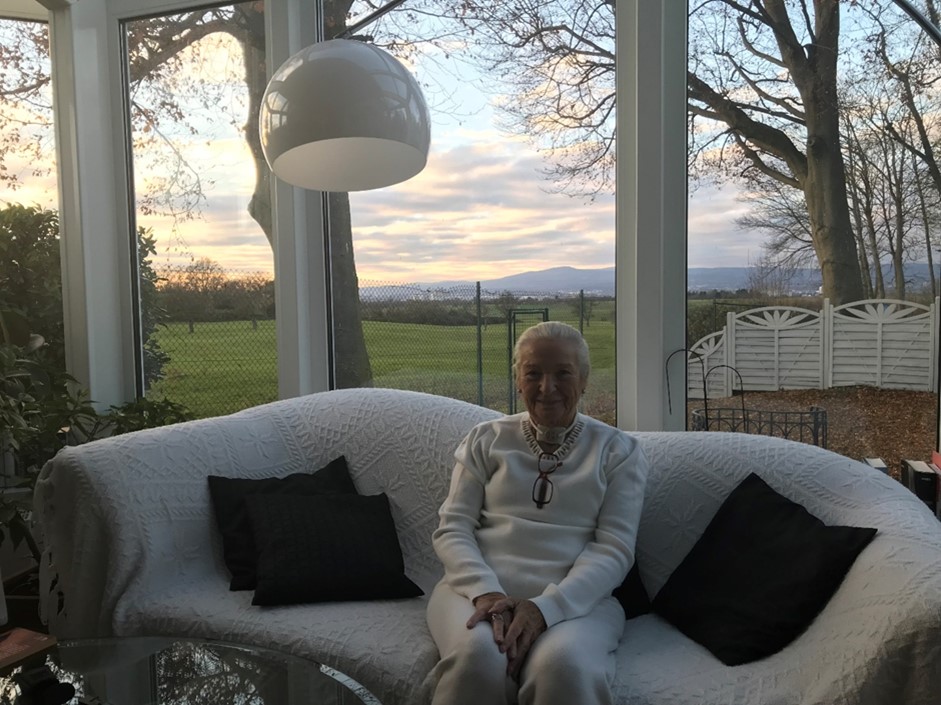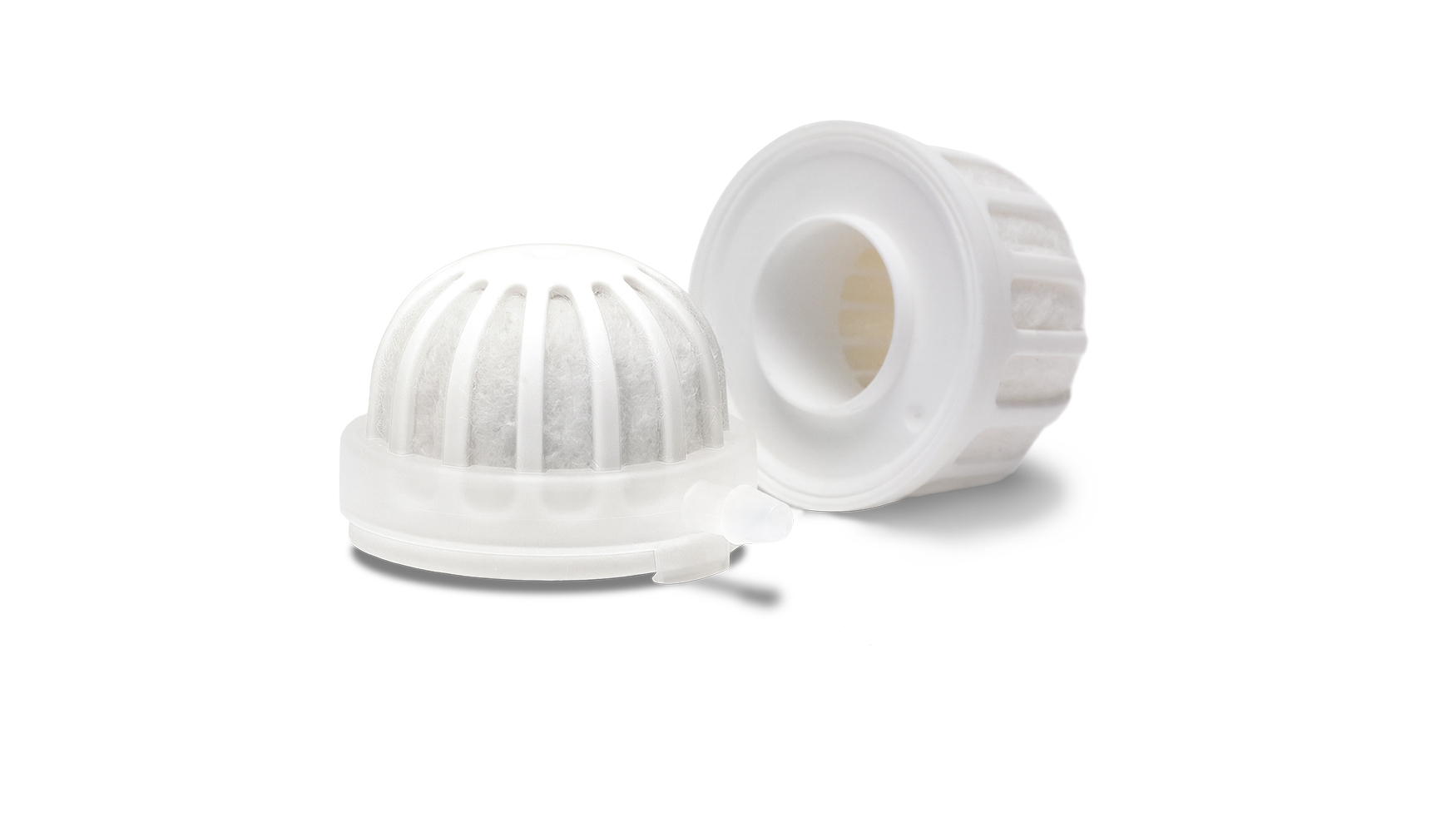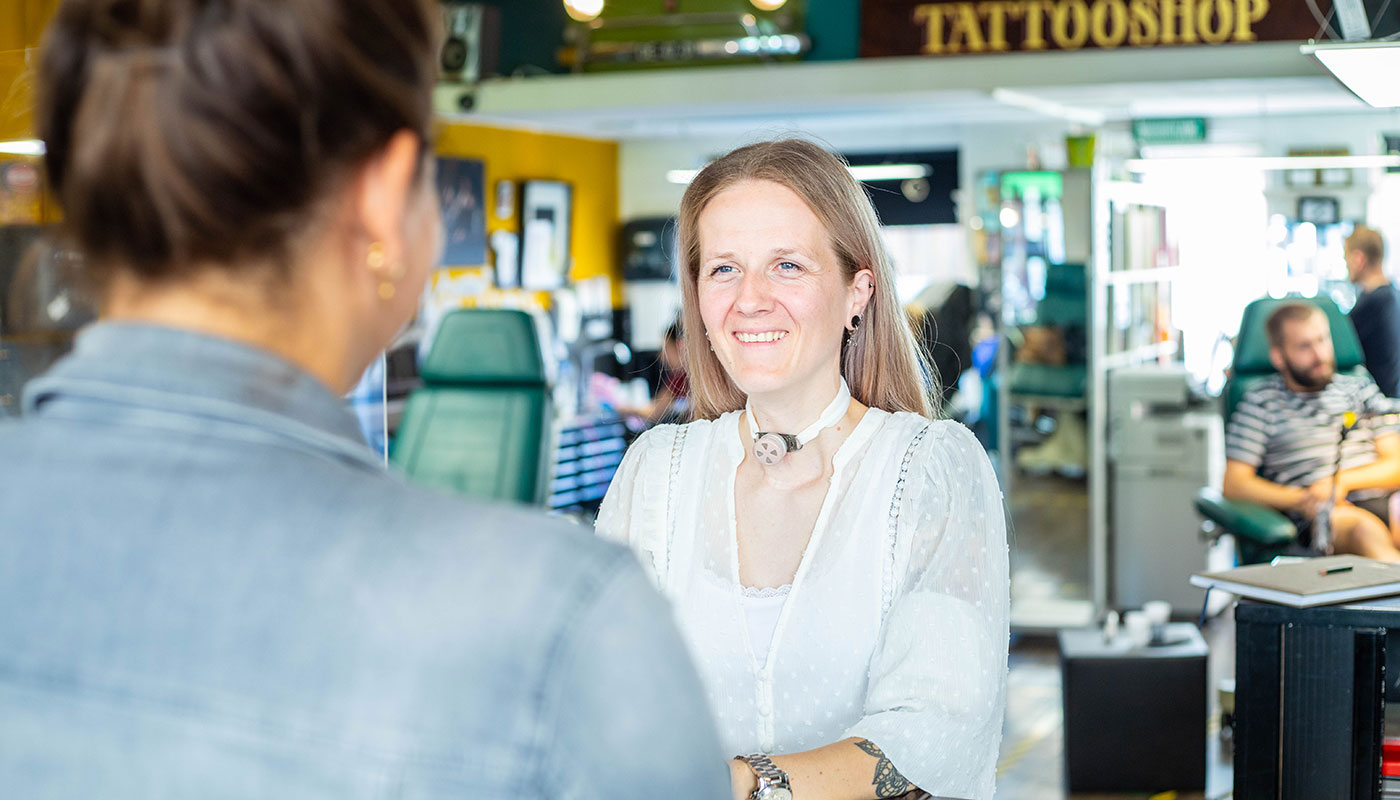Life with a Tracheostomy
An interview with Mrs. Edeltraud Stegemann
Mrs. Edeltraud Stegemann is a 75-year-old from Bad Vilbel in Germany. She has had to undergo two tracheotomies, survived a cardiac arrest and today leads a full life with a tracheostomy. We were privileged to sit down and interview Mrs. Stegemann to gain some insight into her extraordinary experience.

Thank you for letting us interview you, Mrs. Stegemann. Can you tell us why you have a tracheostomy tube?
I was tracheotomized twice in total. I was diagnosed with larynx cancer in 2014, which was to be treated with chemotherapy and radiation. One evening the tumor started bleeding and I had to have an emergency tracheostomy. I then kept the tracheostomy for about 2 months before it was removed.
Due to radiation therapy, the trachea constricted, resulting in daily stridor (a breathing sound that occurs because of constriction of the airway. It can sound like whistling or hissing). As a result, after many more treatments, I was tracheotomized again in 2016 and have been living with the tracheostomy ever since.
Can you tell us about your daily life?
My husband makes me breakfast every morning and then we eat together quietly. Since my esophagus is narrowed by the radiation, I need a lot of time to eat. I have to work hard at swallowing, but I did not want a feeding tube. I prefer to take my time eating, and go to the clinic about every 6-8 months for widening of the esophagus.
I love to be out in the fresh air and therefore spend most of my time outdoors in the summer. In winter, I’m often in our conservatory, where there are also two fitness machines that I use to keep fit.
How do you manage tracheostomy care? Have you developed a routine?
Yes, my husband changes the tracheostomy tube in the morning and evening and cleans the tracheostoma thoroughly. I do the small cleaning in between.
Do you use different products during the day than at night?
Yes, at night I use Provox XtraFlow HME or the Freevent HME with DigiTop. Here I have the option of speaking, if I press on the XtraFlow HME or the DigiTop, but I rarely speak at night (laughs). During the day, I use the DualCare speaking valve.
How is your experience with the Freevent DualCare?
Only the best, I am excited to have my hands free when I talk.
Do you switch between HME and speaking mode?
Do you switch between HME and speaking mode?
Yes, of course. I only turn the DualCare to speaking mode when I want to speak. As soon as I don’t want to say anything, I turn the DualCare back to HME mode.
I got used to this rotating movement very quickly. I switch back and forth between the two modes very frequently: it’s now completely automatic.
What are the advantages of wearing a Freevent DualCare?
It’s a feeling of freedom because I can speak hands-free. So, I can use my voice to communicate.
What would you say to someone who hesitates or refuses to use HMEs?
There is nothing more comfortable and better for my lungs, because the HME is like a helpful barrier and makes the air I breathe more suitable for my lungs.
What were your biggest challenges after surgery?
It took me a while to process everything. I had to accept that eating was not going so well and that I had to relearn many things.
What advice would you give to someone who has just had a tracheostomy?
Above all, time brings the necessary experience to handle the tracheostomy better and better. One should keep calm, not get nervous, and learn to cope with things. Of course, it is also important to think positively. There are setbacks every now and then and you have to pick yourself up again and keep going. Life can be so beautiful.
The testimonials relate to how one individual has experienced the use of Atos Medical products and not every person will get the same results. Atos Medical AB does not suggest, imply or make any claims other than those detailed in the product manual.
Share


